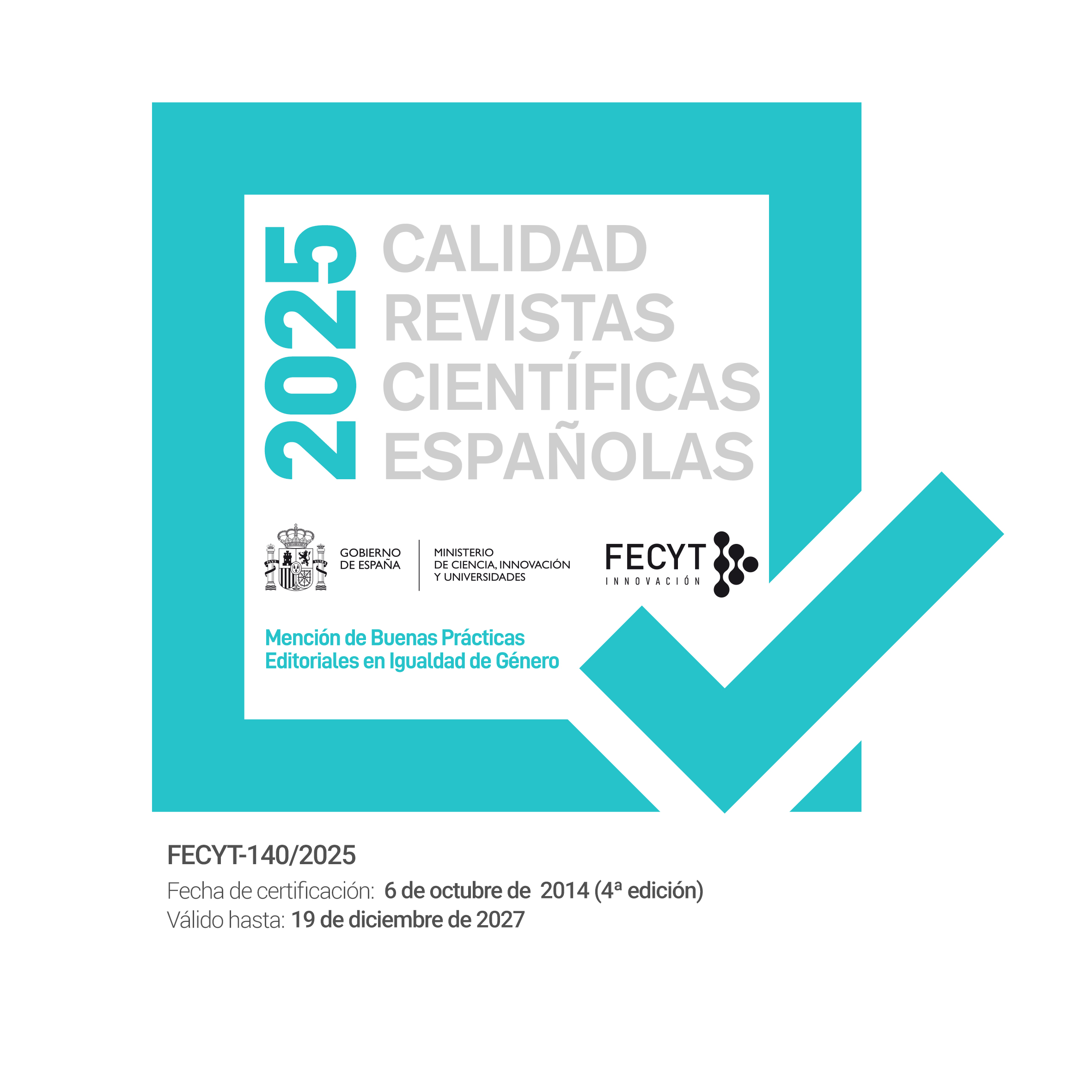Cantidad de deberes, tiempo dedicado y aprovechamiento: un análisis de perfiles latentes en educación secundaria
DOI:
https://doi.org/10.5944/educxx1.39364Palabras clave:
deberes, enseñanza secundaria, perfil del alumno, conducta del alumno, motivación, estilo cognitivoResumen
La investigación pasada sugiere que la cantidad de deberes realizados, el tiempo dedicado a los mismos o, incluso, la gestión del tiempo, no se relacionan positivamente con un mayor rendimiento cuando se toman individualmente. Por ello, el principal propósito de este estudio es identificar perfiles de estudiantes, definidos en base a la cantidad de deberes escolares que realizan, el tiempo que dedican a realizarlos y la gestión de ese tiempo. Se trata de comprobar las diversas combinaciones que se dan dentro de las y los participantes con respecto a la implicación conductual en las tareas académicas realizadas en el hogar, integrando una perspectiva centrada en la persona y no tomando las variables de forma independiente. Una vez identificados, definidos y caracterizados potenciales perfiles, se pretende averiguar cuáles son sus diferencias a nivel afectivo-motivacional y cognitivo y también con respecto al rendimiento académico. La muestra está integrada por 1935 estudiantes de Educación Secundaria Obligatoria (ESO) pertenecientes a 22 centros educativos de Galicia y de Asturias. Se han identificado tres perfiles de implicación conductual según su nivel de implicación: media-alta, media y baja. A su vez, estos tres perfiles se relacionan de manera diferente con la motivación, la ansiedad, el enfoque de trabajo y el rendimiento académico. En concreto, y en general, cuanto mayor es el nivel de implicación conductual mayor es la motivación intrínseca, menor la ansiedad ante los deberes, más profundo el enfoque de trabajo sobre los mismos y mayor el rendimiento académico. Como conclusión, se discute la necesidad de tomar en cuenta, al menos, estas tres variables de implicación conductual –cantidad de deberes realizados, tiempo dedicado y gestión del tiempo– según los perfiles encontrados para ser capaces de asegurar condiciones óptimas personales de trabajo en los deberes y un buen rendimiento académico.
Descargas
Citas
Ato, M., López, J. J., & Benavente, A. (2013). Un sistema de clasificación de los diseños de investigación en psicología. Anales de Psicología, 29(3), 1038-1059. https://doi.org/10.6018/analesps.29.3.178511
Cohen, J. (1988). Statistical power analysis for the behavioral sciences. Lawrence Erlbaum.
Cooper, H. (1989). Homework. Longman. https://doi.org/10.1037/11578-000
Estévez, I., Regueiro, B., Rodríguez, S., Piñeiro, I., Souto, A., & González-Sanmamed, M. (2018). Why students of Secondary Education complete more homework? European Journal of Investigation in Health, Psychology and Education, 8(1), 15-21. https://doi.org/10.30552/ejihpe.v8i1.222
Finney, S. J., & DiStefano, C. (2013). Nonnormal and categorical data in structural equation modeling. En G. R. Hancock & R. O. Mueller (Eds.), Structural equation modeling: a second course (pp. 439-492). Information Age Publishing Inc.
Flunger, B., Trautwein, U., Nagengast, B., Lüdtke, O., Niggli, A., & Schnyder, I. (2017). A person-centered approach to homework behavior: students’ characteristics predict their homework learning type. Contemporary Educational Psychology, 48, 1-15. https://doi.org/10.1016/j.cedpsych.2016.07.002
Fong, C. J., Patall, E. A., Vasquez, A. C., & Stautberg, S. (2019). A Meta-Analysis of Negative Feedback on Intrinsic Motivation. Educational Psychology Review, 31(1), 121-162. https://doi.org/10.1007/s10648-018-9446-6
González-Pienda, J. A. (2003). El rendimiento escolar. Un análisis de las variables que lo condicionan. Revista Galego-portuguesa de Psicoloxía e Educación, 8(7), 247-258. https://ruc.udc.es/dspace/handle/2183/6952
Hickendorff, M., Edelsbrunner, P. A., McMullen, J., Schneider, M., & Trezise, K. (2018). Informative tools for characterizing individual differences in learning: Latent class, latent profile, and latent transition analysis. Learning and Individual Differences, 66, 4-15. https://doi.org/10.1016/j.lindif.2017.11.001
Hipp, J. R., & Bauer, D. J. (2006). Local solutions in the estimation of growth mixture models. Psychological Methods, 11(1), 36-53. https://doi.org/10.1037/1082-989X.11.1.36
Kalenkoski, C. M., & Pabilonia, S. W. (2017). Does high school homework increase academic achievement? Education Economics, 25(1), 45-59. https://doi.org/10.1080/09645292.2016.1178213
Lanza, S. T., & Cooper, B. R. (2016). Latent Class Analysis for Developmental Research. Child Development Perspectives, 10(1), 59-64. https://doi.org/10.1111/cdep.12163
Lanza, S. T., Flaherty, B. P., & Collins, L. M. (2003). Latent class and latent transition analysis. En J. A. Schinka & W. F. Velicer (Eds.), Handbook of psychology: research methods in psychology (pp. 663-685). John Wiley & Sons, Inc.
Lo, Y., Mendell, N. R., & Rubin, D. B. (2001). Testing the number of components in a normal mixture. Biometrika, 88(3), 767-778. https://doi.org/10.1093/biomet/88.3.767
Magalhães, P., Ferreira, D., Cunha, J., & Rosário, P. (2020). Online vs traditional homework: a systematic review on the benefits to students’ performance. Computers & Education, 152, 1-17. https://doi.org/10.1016/j.compedu.2020.103869
Muthén, L. K., & Muthén, B. O. (s. f.). Mplus user’s guide (6th ed.). Muthén & Muthén.
Núñez, J. C., Suárez, N., Rosário, P., Vallejo, G., Valle, A., & Epstein, J. L. (2015). Relationships between perceived parental involvement in homework, student homework behaviors, and academic achievement: differences among elementary, junior high, and high school students. Metacognition and Learning, 10(3), 375-406. https://doi.org/10.1007/s11409-015-9135-5
OCDE. (2013). PISA 2012 Results: what makes schools successful (v. 4). OECD Publishing. https://doi.org/10.1787/9789264201156-en
Özyildirim, G. (2022). Time spent on homework and academic achievement: a meta-analysis study related to results of TIMSS. Psicología Educativa, 28(1), 13-21. https://doi.org/10.5093/psed2021a30
Regueiro, B. (2018). Metas académicas, deberes escolares y aprendizaje en estudiantes de secundaria [Tesis Doctoral, Universidade da Coruña]. Repositorio Institucional de la Universidade da Coruña. http://hdl.handle.net/2183/21560
Regueiro, B., Núñez, J. C., Valle, A., Piñeiro, I., Rodríguez, S., & Rosário, P. (2016). Motivational profiles in high school students: differences in behavioural and emotional homework engagement and academic achievement. International Journal of Psychology, 53(6), 449-457. https://doi.org/10.1002/ijop.12399
Rodríguez, S., Núñez, J. C., Valle, A., Freire, C., Ferradás, M. del M., & Rodríguez-Llorente, C. (2019). Relationship between students’ prior academic achievement and homework behavioral engagement: the mediating/moderating role of learning motivation. Frontiers in Psychology, 10, 1047. https://doi.org/10.3389/fpsyg.2019.01047
Rodríguez, S., Piñeiro, I., Regueiro, B., & Estévez, I. (2020). Intrinsic motivation and perceived utility as predictors of student homework engagement. Revista de Psicodidáctica (English ed.), 25(2), 93-99. https://doi.org/10.1016/j.psicoe.2019.11.001
Rosário, P., Mourão, R., Núñez, J. C., González-Pienda, J. A., & Solano, P. (2006). Escuela-familia: ¿Es posible una relación recíproca y positiva? Papeles del Psicólogo, 27(3), 171-179. http://hdl.handle.net/1822/11908
Suárez, N., Fernández, E., Regueiro, B., Rosário, P., Xu, J., & Núñez, J. C. (2022). Parental Involvement in Homework During Covid-19 Confinement. Psicothema, 34(3), 421-428. https://doi.org/https://doi.org/10.7334/psicothema2021.532
Suárez, N., Regueiro, B., Estévez, I., Ferradás, M. del M., Guisande, M. A., & Rodríguez, S. (2019). Individual precursors of student homework behavioral engagement: the role of intrinsic motivation, perceived homework utility and homework attitude. Frontiers in Psychology, 10, 941. https://doi.org/10.3389/fpsyg.2019.00941
Valle, A., Pan, I., Núñez, J. C., Rosário, P., Rodríguez, S., & Regueiro, B. (2015). Deberes escolares y rendimiento académico en Educación Primaria. Anales de Psicología, 31(2), 562-569. https://doi.org/10.6018/analesps.31.2.171131
Valle, A., Pan, I., Regueiro, B., Suárez, N., Tuero, E., & Nunes, A. R. (2015). Predicting approach to homework in Primary school students. Psicothema, 27(4), 334-340. https://doi.org/10.7334/psicothema2015.118
Valle, A., Piñeiro, I., Rodríguez, S., Regueiro, B., Freire, C., & Rosário, P. (2019). Time spent and time management in homework in elementary school students: a person-centered approach. Psicothema, 31(4), 422-428. https://doi.org/10.7334/psicothema2019.191
Valle, A., Regueiro, B., Núñez, J. C., Rodríguez, S., Piñeiro, I., & Rosário, P. (2016). Academic goals, student homework engagement, and academic achievement in elementary school. Frontiers in Psychology, 7, 463. https://doi.org/10.3389/fpsyg.2016.00463
Valle, A., & Rodríguez, S. (2020). MITCA: homework implementation method. Servicio de Publicaciones. Universidad de A Coruña. https://doi.org/10.17979/spudc.9788497496360
Vermunt, J. K. & Magidson, J. (2021). How to perform three-step Latent Class Analysis in the presence of measurement non-invariance or differential item functioning. Structural Equation Modeling: A Multidisciplinary Journal, 28(3), 356-364. https://doi.org/10.1080/10705511.2020.1818084
Vieites, T., Díaz-Freire, F. M., Rodríguez, S., Rodríguez-Llorente, C., & Valle, A. (2023). Effects of a homework implementation method (MITCA) on school engagement. European Journal of Psychology of Education. https://doi.org/10.1007/s10212-023-00743-z
Vieites, T., Regueiro, B., Rodríguez-Llorente, C., & Morado, T. (2023). Cantidad y calidad del tiempo dedicado a los deberes escolares en alumnado de Educación Secundaria. Un análisis de perfiles latentes. Revista de Investigación Educativa, 41(2), 439-454. https://doi.org/https://doi.org/10.6018/rie.544491
Xu, J. (2012). Predicting students’ homework environment management at the secondary school level. Educational Psychology, 32(2), 183-200. https://doi.org/10.1080/01443410.2011.635639
Xu, J. (2018). Reciprocal effects of homework self-concept, interest, effort, and math achievement. Contemporary Educational Psychology, 55, 42-52. https://doi.org/10.1016/j.cedpsych.2018.09.002
Xu, J. (2022). More than minutes: A person-centered approach to homework time, homework time management, and homework procrastination. Contemporary Educational Psychology, 70, 1-12. https://doi.org/10.1016/j.cedpsych.2022.102087
Xu, J., Du, J., Wu, S., Ripple, H., & Cosgriff, A. (2018). Reciprocal effects among parental homework support, effort, and achievement? An empirical investigation. Frontiers in Psychology, 9(2334), 1-10. https://doi.org/10.3389/fpsyg.2018.02334
Xu, J., & Núñez, J. C. (2023). Homework purposes in eighth grade students: Identifying student profiles and their relationship with homework effort, completion, and cchievement. Psicothema, 35(2), 111-118. https://hdl.handle.net/11162/247570

Descargas
Archivos adicionales
Publicado
Cómo citar
Número
Sección
Licencia
Derechos de autor 2024 Susana Rodríguez, Tania Vieites, Carolina Rodríguez-Llorente, Antonio Valle, José Carlos Núñez

Esta obra está bajo una licencia internacional Creative Commons Atribución-NoComercial 4.0.
La revista Educación XX1 se publica bajo licencia Creative Commons Reconocimiento-NoComerciaL 4.0 (CC BY-NC 4.0). Se permite la generación de obras derivadas siempre que no se haga un uso comercial. Tampoco se puede utilizar la obra original con finalidades comerciales.










